How a social media film exposed a pick-up artist
- Published
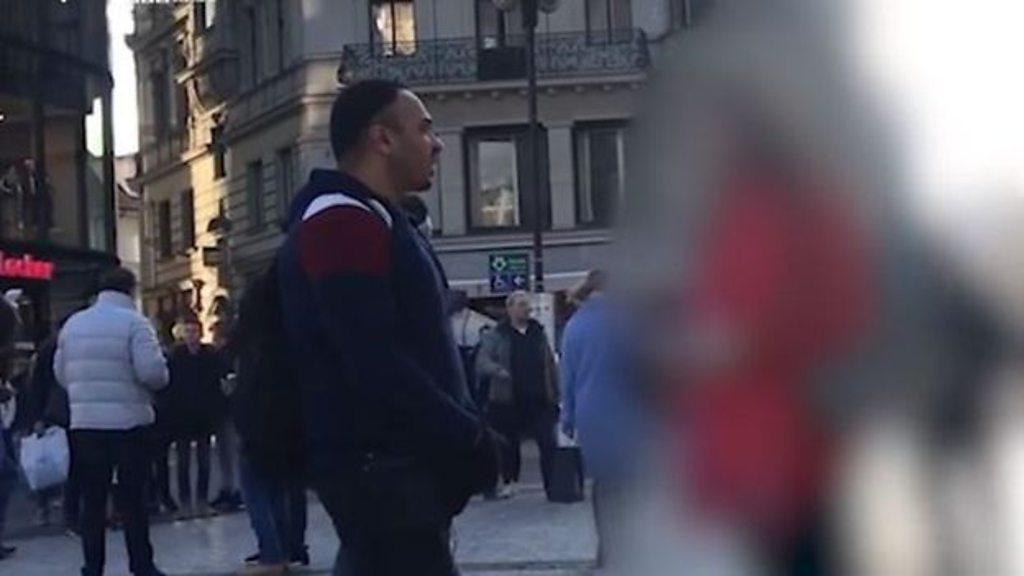
Adnan Ahmed, also known as Addy A-game, approaches women in the street
Adnan Ahmed posted hundreds of videos on YouTube in which he boasted about having sex with strangers, hours after meeting them.
In the videos, Ahmed shares his exploits by secretly filming his predatory approaches to dozens of women and posting them online. He also advises men on how to overcome "last-minute resistance" to sex.
One video clip includes audio of a woman apparently recorded during sex. A woman is then shown sleeping with an unused condom next to her.
Glasgow-based Ahmed, who called himself Addy A-game, is part of a global network of "pick-up artists" who practise what they call 'game'.
It is a multimillion pound industry in which men teach other men how to pick up women.
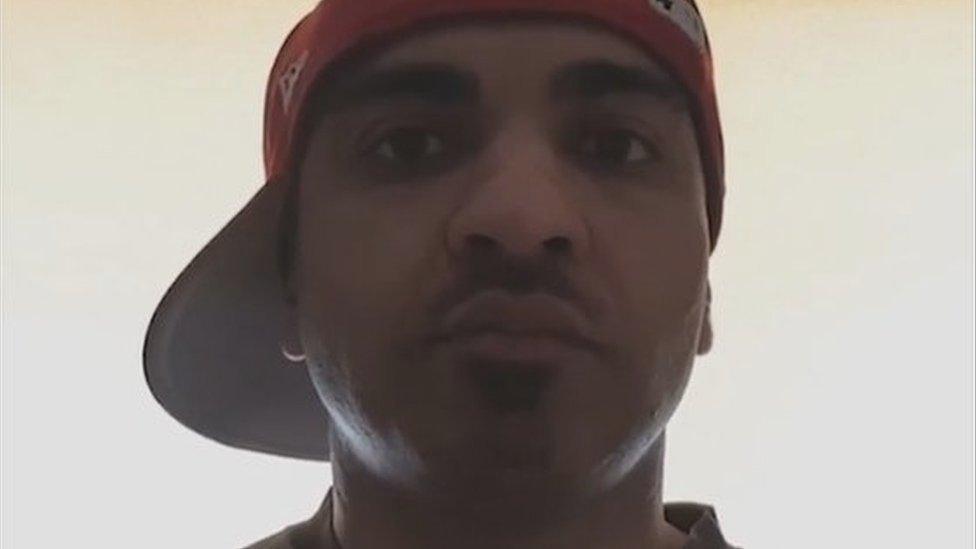
Adnan Ahmed, appearing here in one of his online videos, defended his online videos
Ahmed had been posting material on YouTube for two years but it was a BBC film that brought his activities to public notice and led to his arrest.
Police acted earlier this year after the publication of a video made by BBC Scotland's The Social.
'Utterly sickened'
In January, the video about Ahmed's activities went viral, clocking up more than two million hits.
First Minister Nicola Sturgeon told a packed Scottish Parliament that she had watched the film and was "utterly sickened" by what she saw.
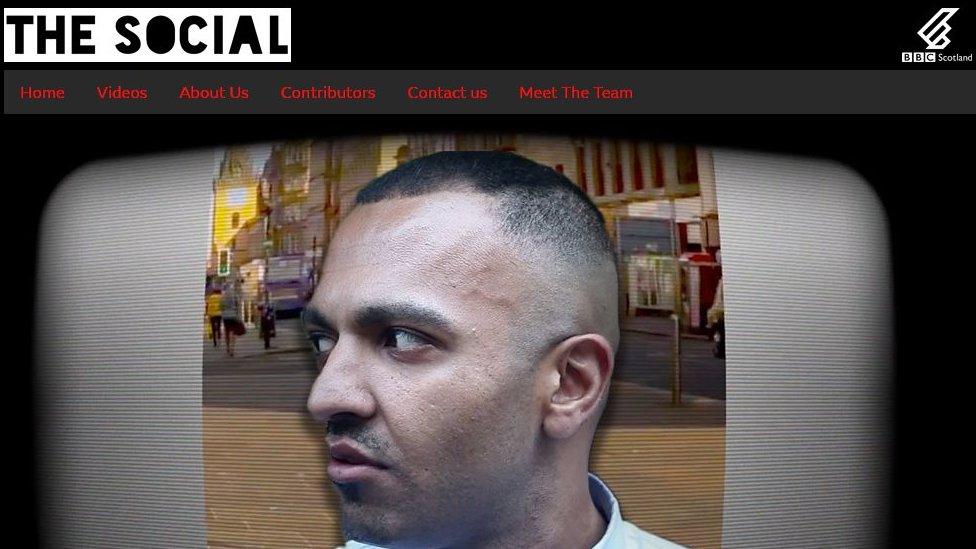
The BBC Scotland The Social video was quickly watched more than two million times
Within days, women were speaking online about their own experiences of being harassed by Ahmed.
On 11 January, he was arrested and nine months later he has been found guilty of five charges of behaving in a threatening and abusive manner.
However, a BBC Scotland Disclosure investigation has found that Police Scotland had already known about his activities for three months before the BBC film was published, after a fellow college student reported him in October 2018.
Rita Bruce shared a car with Ahmed to travel to Fife College, where they were both studying social services.
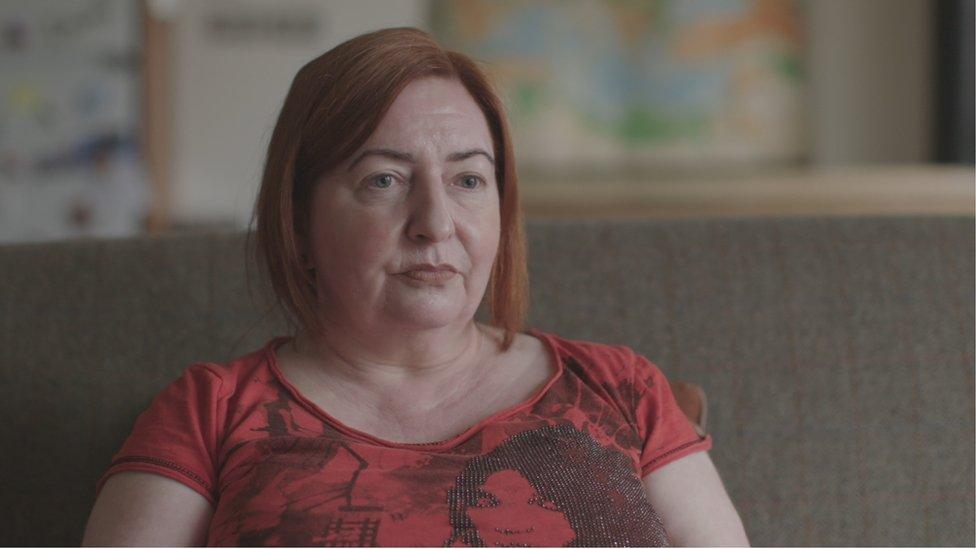
Rita Bruce reported Ahmed to Abertay University over his activities
Ms Bruce says that seeing Ahmed's Instagram led her to his videos.
"I felt physically sick," she says. "He's got guys in the background filming him approaching women and young girls. They don't know they're being filmed. They don't know they're being recorded. So, right from the off it's seedy, it's underhand.
"This isn't just picking up women, this is much darker. I thought, 'I need to tell some authoritative body about this'. And I phoned the police."
It emerged during the trial that even before Ms Bruce raised the alarm, a Glasgow City Council community enforcement officer had also reported Ahmed to police after witnessing his "predatory" behaviour.
Ahmed continued to approach women in the street and post offensive material on his YouTube channel.
He approached student Becca, 20, in November last year, at a bus stop in Glasgow's Maryhill Road.
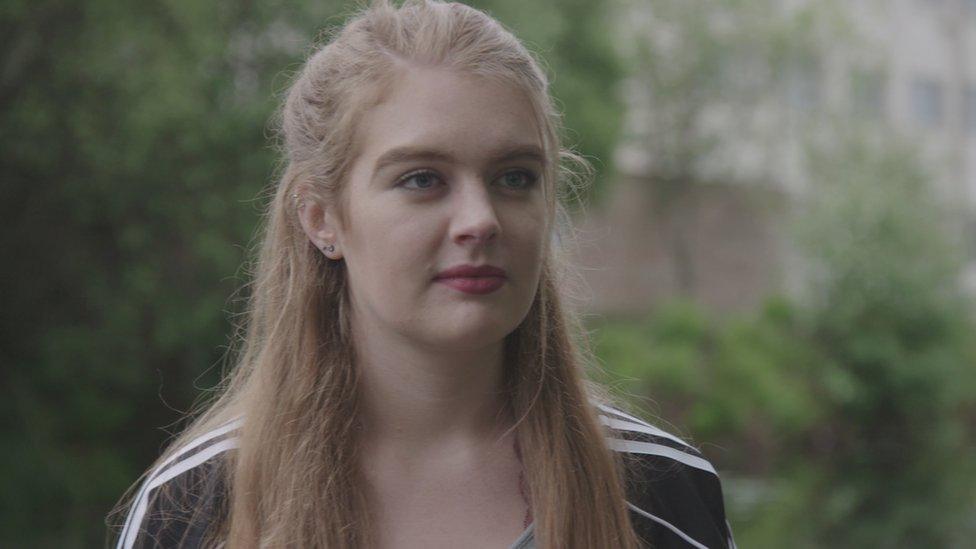
Becca says she felt uncomfortable after an encounter with Ahmed last year
"I just blanked him," she said. "And then eventually he gave up, called me "a bitch". I just started feeling really quite uncomfortable about it.
"Obviously you have these thoughts when he's starting to become a little bit aggressive - is he going to follow me on to the bus? What is he going to do next?"
BBC Scotland's Disclosure knows of at least six other women who said they were approached by Ahmed after Rita had reported him to police in 2018.
Becca said: "If it was reported then that report should have been taken a lot more seriously. The BBC found the videos and stuff on his YouTube - so obviously it's not that hard if you're investigating him to see that actually he is a danger to women.
"So just the fact that he was allowed to continue that behaviour for months later it is just totally ridiculous. It should have been taken a lot more seriously as a report."
Sandy Brindley, the chief executive of Rape Crisis Scotland, is also critical of the police response.
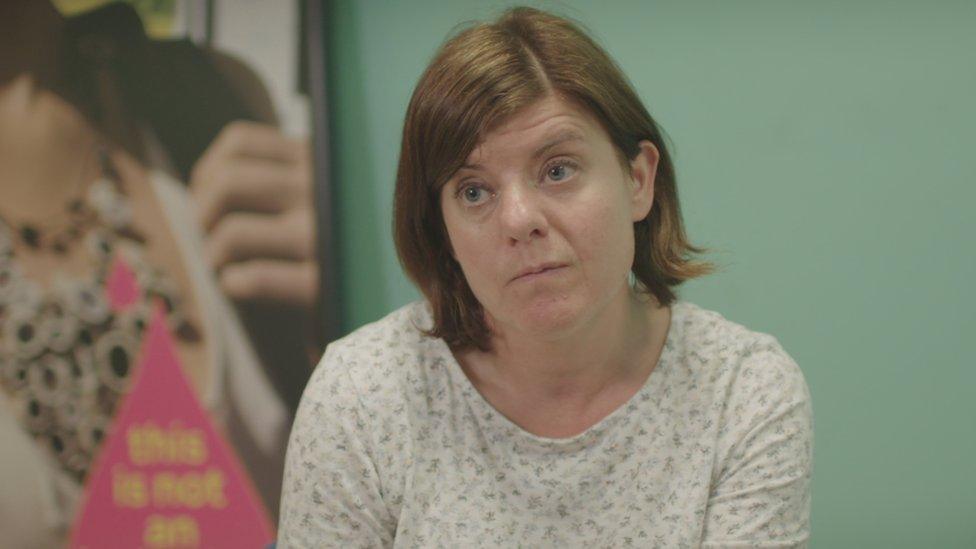
Sandy Brindley, from Rape Crisis Scotland, said such predatory behaviour should have been taken seriously sooner
"The whistleblower is to be commended for persisting with this," she said. "I think the police could have and should have acted sooner."
"I think when they did act, they acted very well. But I do think there are lessons to be learned about acting quicker when there's such clearly predatory behaviour being reported to them."
Police Scotland confirmed that its investigation was launched in January.
Senior investigating officer, Det Insp Mark McLennan, said: "The women Ahmed approached were subjected to harassment and were frightened by his unwanted attention.
"I want to pay tribute to the courage of these women in coming forward and giving evidence in order to bring Ahmed to justice, particularly as he appears to have expected them to tolerate his unwarranted and unwelcome behaviour."
See more on this story in Disclosure: The Seduction Game, at 20:30 on Monday 7 October, on BBC One.